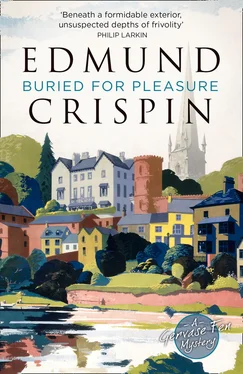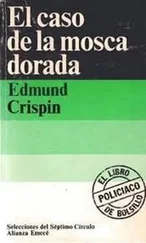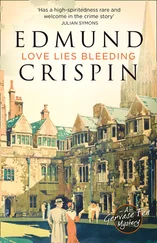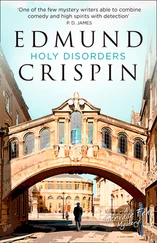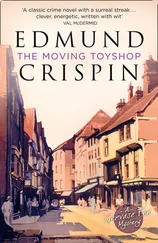Outside the gate of one of the cottages Fen saw Diana talking earnestly to a young man in shabby tweeds. She waved to him, but her conversation seemed engrossing, and he did not venture to interrupt it.
Before long he reached the edge of the village and came to a spot which he suspected might be the scene of Mrs Hennessy’s encounter on the previous evening. Resisting the temptation to root about for traces of the lunatic, he passed on, and soon arrived at a miniature cross-roads, with a sign-post which added to its total illegibility the even graver defect of pointing in no particular direction.
After some hesitation he entered the lane on the left.
It was the height of summer. The hips of the dog-rose were ripe in the hedges. Barley was being cut, flecked with the scarlet of poppies. Copper butterflies roamed fragile as thistledown through the hot air. Spiders’ webs draped the twigs and leaves. In the distance a heat haze was forming, but a line of white smoke enabled you to follow the progress of a distant train.
Fen began to walk more briskly. The country, a place with which he was not normally infatuated, seemed particularly winning today…
But he had not gone a hundred yards before a startling spectacle halted him in his tracks.
He had come to a five-barred gate giving access to a large, irregularly-shaped field. Its hedges were mainly of thorn. It had a dank-looking pond – much diminished now by the lack of rain – in the middle of it. And at the pond’s margin a duck, its snow-white plumage somewhat marred by the green slime which clung to its underside, was hobbling slowly about.
But it was not these things that had caught Fen’s attention. It was a man who was entering the field through a gap on the far side.
He was short, stout, harassed-looking, middle-aged. He wore gloves, a reefer jacket inside out, and pale purple trousers tucked into large black gumboots. And he was moving in a crouched, furtive manner, like one who tries to evade pursuit.
On reaching the edge of the pond, however, he straightened up and glanced quickly about him; then produced from the pocket of his coat a large, antique service revolver which seemed to be attached by a length of string to his braces. This he levelled at a wizened sapling which was growing by the hedge.
‘Bang,’ he said. ‘Bang, bang, bang.’
Now a look of satisfaction appeared on his face, and, turning, he suddenly hurled the revolver, still attached to its string, into the centre of the pond. After a moment’s pause he hauled it out again, like a fish on the end of a line, removed the string both from it and from his braces, wrapped this string in a piece of newspaper, crammed it into his pocket and, leaving the revolver where it lay, hurried across to the sapling, where with much difficulty he shouldered an imaginary burden and tottered with it in Fen’s direction. The duck, which had ambled into his path, gave him one look and then fled away before him, quacking angrily, like a leaf driven by an autumn gale.
It was clear that the man had not yet become aware of Fen’s presence. He staggered almost as far as the gate, lowered his invisible load to the ground with a sigh of relief, pulled off his coat, removed the paper-wrapped length of string from its pocket, turned the coat delicately right side out, and with much groaning and effort began putting it on to whatever it was he imagined was lying at his feet.
He was thus engaged when, becoming abruptly conscious that he was not alone, he looked up and caught Fen’s fascinated eye.
He stood upright, slowly, and expelled his breath in a long gasp of dismay.
‘A – aaaaaah,’ he said.
They gazed rigidly at one another for a moment longer. Then the man, recovering the power of articulate speech, remarked: ‘I’m not mad.’
This discouraging social gambit touched Fen. He said kindly: ‘Of course you’re not mad.’
The man became frantic. ‘I’m really not mad, I mean,’ he said.
‘I quite believe you,’ said Fen. ‘You needn’t imagine I’m just trying to humour you.’
‘You see,’ the man nervously explained, ‘there’s a lunatic at large, and I was afraid that you, being a stranger, might assume—’
‘No, no,’ Fen assured him. ‘I never had any doubt about what you were doing. But I imagine few detective novelists can be as scrupulous.’
The man relaxed suddenly, and began wiping his forehead with a brightly coloured handkerchief. He picked up the reefer jacket and put it on.
‘One’s plots are necessarily improbable ,’ he said a trifle didactically, ‘but I believe in making sure that they are not impossible .’ His utterance was prim and selfconscious, like himself. ‘Short of murder itself, I try everything out before finally adopting it for a book, and really, you would be surprised at the number of flaws and difficulties which are revealed in the process.’
Fen put his elbows on the top bar of the gate and leaned there comfortably.
‘And of course’, he said, ‘it must enable you to get to some extent inside the mind of the murderer.’
An expression of mild repugnance appeared on the man’s face. ‘No,’ he said, ‘no, it doesn’t do that.’ The subject seemed painful to him, and Fen felt that he had committed an indiscretion. ‘The fact is,’ the man went on, ‘that I have no interest in the minds of murderers, or for that matter,’ he added rather wildly, ‘in the minds of anyone else. Characterization seems to me a very over-rated element in fiction. I can never see why one should be obliged to have any of it at all, if one doesn’t want to. It limits the form so.’
Fen agreed, with no special conviction, that it did, and particularly in the case of detective stories. ‘I read a good many of them,’ he said, ‘and I must know yours. May I ask your name?’
‘Judd,’ the man replied, ‘my name is Judd. But I write’ – he hesitated, in some embarrassment – ‘I write under the pseudonym of “Annette de la Tour”.’
‘Ah, yes,’ said Fen. Annette de la Tour’s books, he remembered, were complicated, lurid, and splendidly melodramatic. And certainly they made no concessions to the Baal of characterization. He said: ‘Your work has given me a great deal of pleasure, Mr Judd.’
‘Has it?’ said Mr Judd eagerly. ‘Has it really? I’ve been writing for twenty years, and no one has ever said anything like that to me before. My dear fellow, I’m so grateful.’ His eyes sparkled with innocent pleasure. ‘And it’s all the better coming, as it evidently does, from an intelligent man.’
Upon this shameless quid pro quo he paused expectantly, and Fen, feeling that he was required to identify himself, did so. Mr Judd clapped his hands together with excitement.
‘But how splendid!’ he exclaimed. ‘Of course I’ve followed all your cases. We must have a very long talk together, a very long talk indeed. Are you staying here?’
‘Yes.’
‘For long?’
‘Until after polling day. I’m standing for Parliament.’
Mr Judd was taken aback.
‘ Standing? ’ he repeated dazedly. ‘For Parliament? ’
‘It is my wish to serve the community,’ Fen said.
Confronted with this pronouncement, Mr Judd showed himself either more credulous or more courteous than Diana had been.
‘Very commendable,’ he murmured. ‘To tell you the truth, I had rather forgotten there was a by-election in progress… What interest do you represent?’
‘I’m an Independent.’
‘Then you shall have my vote,’ said Mr Judd, narrowly forestalling a primitive attempt at canvassing on Fen’s part. ‘And if I had fifty votes,’ he added lyrically, ‘you should have them all. Tell me, which of my books do you think the best?’
Читать дальше
